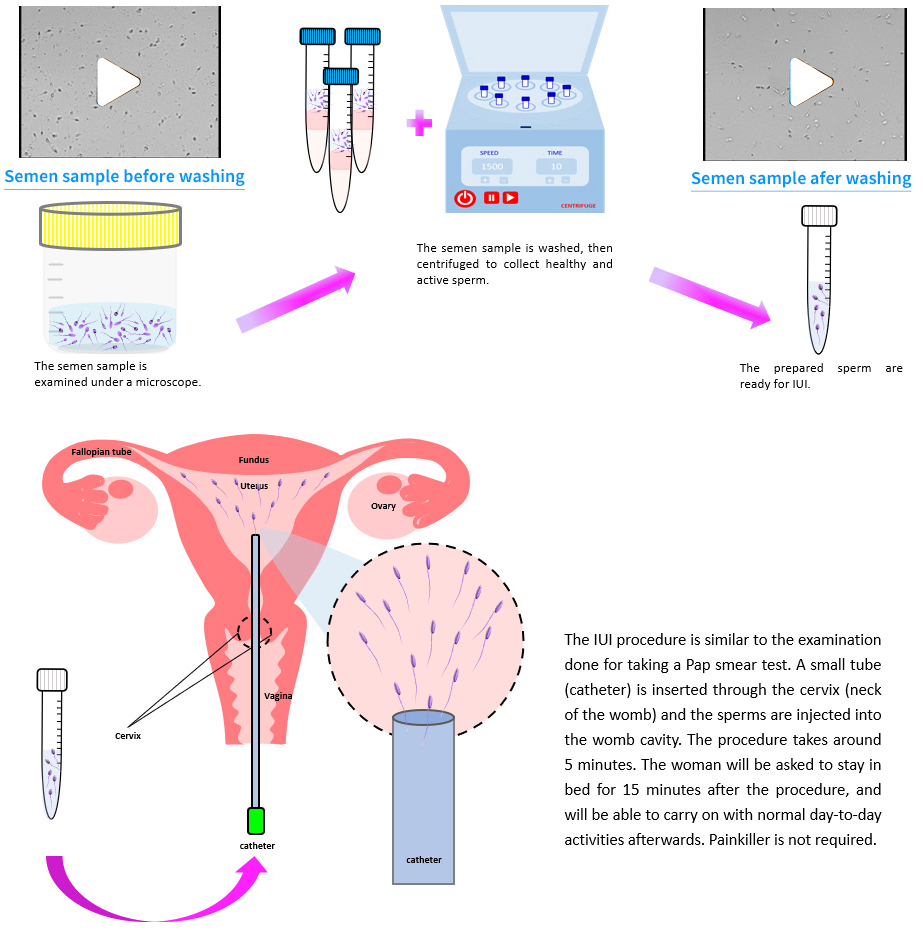Intrauterine Insemination (IUI)
What is intrauterine insemination (IUI)?
Intrauterine Insemination (IUI) is a fertility treatment that uses a catheter to place washed sperm directly into the womb. The goal of IUI is to increase the number of sperm that reach the fallopian tubes thereby increase the chance of fertilization.
Who may need IUI?
-
Men with mild abnormality in their semen quality;
-
Women with mild endometriosis;
-
Couples with unexplained infertility;
-
Couples who are unable to have intercourse because of physical or psychosexual problems;
-
Couples who need donor sperm but have no female fertility problems.
What does IUI involve?
-
Natural cycle
If the woman has regular periods, she can check her ovulation and have IUI on the day when she ovulates. For couples who have regular intercourse and a normal sperm test, natural cycle IUI is unlikely to offer much advantage. This form of IUI is only helpful for couples who need donor sperm or have difficulties having intercourse.
-
Oral ovulation induction drugs cycle
If the woman has irregular periods, she can take oral drugs to promote egg growth and make ovulation more predictable. When ovulation happens, IUI can be arranged.
-
Superovulation cycle
The woman take daily injections to boost the ovaries so that more than one egg can develop. When the eggs are ready, she needs to take an ovulation trigger injection and IUI can be arranged.
What happens on the day of IUI?
On the day of IUI, the husband has to produce a semen sample. He can produce the sample at home or at the Centre, whichever way he prefers. If the husband cannot give a semen sample on that day, he can arrange freezing a semen sample beforehand.
The semen sample is washed and prepared so that the healthy and active sperm are collected.

 scroll right to see more
scroll right to see more
What happens after IUI?
The doctor may prescribe progesterone hormone to help support the lining of the womb. These are usually taken as pessaries which the woman can insert into the vagina herself or as oral tablets. A pregnancy test can be performed around 2 weeks later.
What next if IUI does not work?
Many people need to have several cycles of IUI before they achieve a successful pregnancy. If a couple has had 3 IUI cycles without success, their chance of pregnancy with further IUI treatment will be very low, and the doctor may recommend In-vitro Fertilization (IVF). For couples who need donor sperm or who have difficulties having intercourse, the doctor may recommend 6 cycles of IUI.